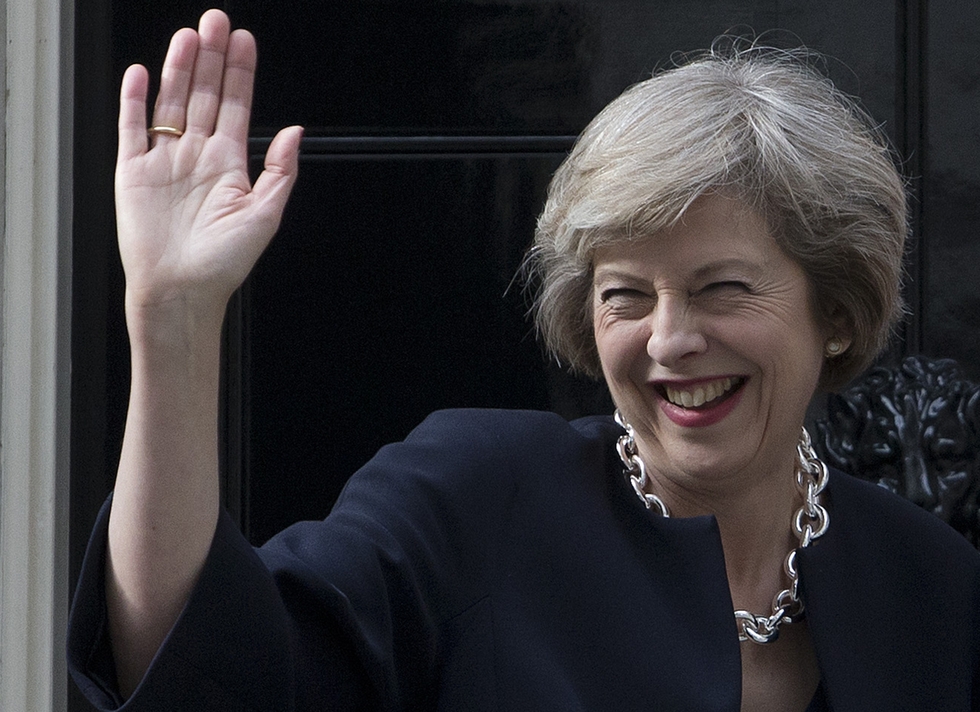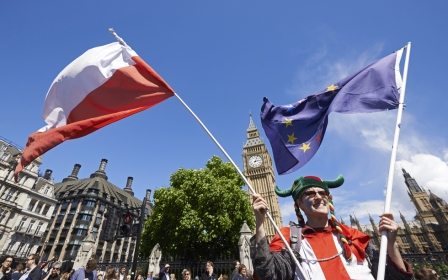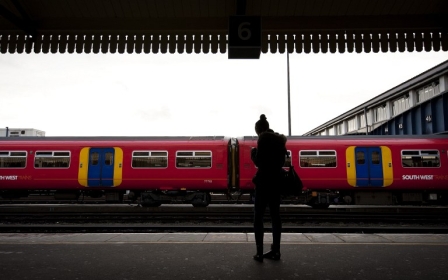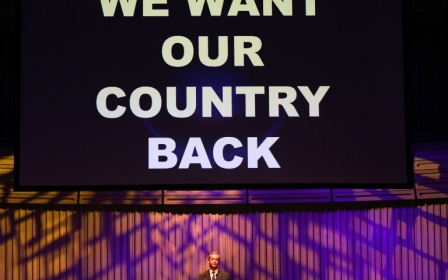The storm of Brexit cannot be calmed by Theresa May

"Brexit means Brexit," the new British Prime Minister Theresa May said, as she became the statesperson to deal with the greatest constitutional crisis in the UK's in recent history.
Nicola Sturgeon, the Scottish first minister, replied to May’s assertion, saying that for those north of the border "remain means remain". It was a brilliant shot across the bow from the politician that has shone brightly in the post-referendum world. While May has not guaranteed the rights of EU nationals, Sturgeon has gone out of her way to assure migrants in Scotland that they are welcomed, respected and celebrated. Scotland’s first minister has said it in speeches and then in letters sent to the registered addresses of migrants. Political gulfs don’t get much bigger.
In a bid to bridge the clear divides, May has placed herself in the tradition of compassionate "one-nation" conservativism where the issues blighting the poor, meek and oppressed are addressed. Such thinking in conservative circles is motivated by the need to reform to conserve.
The conciliatory and compassionate tone she struck as she officially took the post of prime minister was all about keeping the union together and the migrants of the periphery out. But, by instituting Brexit and loading key cabinet posts with prominent Brexiteers, she is lighting the kindling that will torch the ties that bind Scotland and Ulster to England and Wales, while throwing kerosene on the burning fires of the resurgent far-right.
Brexit has been read as a vote to "end freedom of movement". To the Tories, that’s a challenge. To the Labour leadership, it’s a travesty that requires creative solutions. The EU made it very clear that access to the common market is predicated upon freedom of movement. They will not yield. Phillip Hammond, the newly appointed chancellor, has warned Brits that "there will have to be a trade-off." Conservatives are therefore touting the "Norway option," but that requires freedom of movement with an emergency break – the deal Cameron attempted to strike and failed. It should be noted, Norway has more EU migrants per capita than most countries within the EU. The political will to hamper freedom of movement simply does not exist, not in Brussels and not in Berlin.
Member states shirking responsibilities in regards to refugees and the international conventions continue to threaten the stability of the European Union. The EU’s next big challenge comes when Hungary’s Viktor Orban takes his country into a referendum over migrant quotas coming from Brussels. He is pushing for an emphatic "no" to the commission forcing countries within the Schengen zone to take their fair share. It is highly unlikely Brussels will accept any push back from Budapest without crippling it as a consequence.
Bumby exit ahead
The trend of referenda to counter central decision-making is the contagion of Brexit and the EU want it quarantined. They will therefore, grudgingly, make an example of Britain if they need to. With the likes of Boris Johnson, Liam Fox and David Davis managing the transition, expect bumps.
The migrant bashing politicians have weights around their necks. If they accept what they professed to be indefensible and an inexcusable attack upon their sovereignty and native cultures to maintain the benefits of the common market, they feed the far right. Jubilant nationalists will become furious street thugs lashing out if immigration rates do not drop.
Accepting Brussels’ diktat is therefore an option not to take lightly. However, the economic catastrophe is surely the worse outcome, with the markets already in turmoil and a recession looming. The global effect of protectionism is leading to a huge slowdown in global trade, the FT reports. How the likes of Liam Fox - heading up May's new department of international trade - can mitigate this for Britain remains to be seen.
There are few politicians in the world as loose-lipped as Boris Johnson, who seems to have set himself up to be removing the foot from his mouth for at least a month as he addresses world leaders and counterparts. Johnson has racially essentialised Barack Obama as "anti-British", compared Hilary Clinton to a "sadistic nurse in a mental health ward," written an unbelievably offensive poem about Turkey’s President Erdogan, denied the Chinese have any culture and has on numerous occasions used the language of colonial spivs to refer to Congolese children and those of African heritage. The logic behind appointing him has baffled many, with Twitter ablaze with outrage.
Maybe May has a cunning plan and through the carnage of the present, a compromise can be found that won’t be of disastrous consequence. As Johnson himself once mused: "There are no disasters, only opportunities. And, indeed, opportunities for fresh disasters." Brexit seemingly presents an evergreen disaster, with bitter and strange fruits sprouting daily, what opportunities it presents that aren’t catastrophic remains to be seen.
May has stoked the fire
Racism in Britain is mainstream again. A huge spike in violence has been reported since the vote. Reported cases of racism have always been far lower than the actual numbers. There have been firebombings, graffiti attacks, severe beatings and endless verbal abuse. The perpetrators, on average, are white males. The victims are majority women, mostly Muslim and East European, according to the Institute of Race Relations. Their injuries were inflicted by the wicked tongues of the political classes, the poisonous ink of the tabloid press and the fists of the far-right. Brexit is the moment the nationalists have waited for. An end to freedom of movement is a validation of what they have always felt: migrants are a strain on services and an impure and corrupting force on a national culture. May cannot calm the fury. She stoked it as much as anyone.
During May’s tenure at the Home Office, anti-migrant rhetoric was upped. A climate of fear was created for undocumented workers, who had vans telling them to "go home". The UK Border Agency raids increased. Deportations increased. The stripping of passports became a stick to punish anyone of dual nationality convicted of a crime (even if it was associative and through joint enterprise). British subjects stripped of their rights by the flick of a pen were consigned to death, torture and god knows what else through the callousness of this allegedly compassionate conservative.
The Prevent agenda and the Counter Terrorism and Security Bill 2015 are two things that underline the prejudice at the heart of May’s administration. The anti-Muslim bias of her decision-making is well documented, as is her contempt for the Human Rights Act. The legislation, May asserted from the Home Office, makes Britain less secure "by preventing the deportation of dangerous foreign nationals." The Human Rights Act is therefore very likely to be chucked in the furnace to power the engines of change.
May, compassionate as she may seem, has a deeply authoritarian side. She is now empowered to write Britain’s constitution with a bill of rights, which will be drafted once the course of Brexit has been established and with as little constraint from Europe as possible. In order to achieve her aims, she is going to have to feed the right enough to stop their fury being focused on her, while also keeping the markets happy by assuring as much access to Europe as possible.
Acting in the interests of the one-nation and centrism by stealing large chunks of rhetoric and policy from former Labour leader Ed Miliband is a strange beginning, but it should not be misinterpreted. May’s appointments and discourse have set a path that will lead to a lot of pain. Migrants, refugees and Muslims are the fodder for May’s political goals, Labour and the SNP must present the alternative in parliament. On the streets, the battle is only just beginning. Despite the rain, it’s going to be a very hot summer.
- Daniel Renwick is a journalist and youth worker. He was based in Germany for three years before returning to London.
The views expressed in this article belong to the author and do not necessarily reflect the editorial policy of Middle East Eye.
Photo: Britain's new Prime Minister Theresa May waves outside 10 Downing Street in central London on 13 July, 2016 (AFP).
New MEE newsletter: Jerusalem Dispatch
Sign up to get the latest insights and analysis on Israel-Palestine, alongside Turkey Unpacked and other MEE newsletters
Middle East Eye delivers independent and unrivalled coverage and analysis of the Middle East, North Africa and beyond. To learn more about republishing this content and the associated fees, please fill out this form. More about MEE can be found here.





